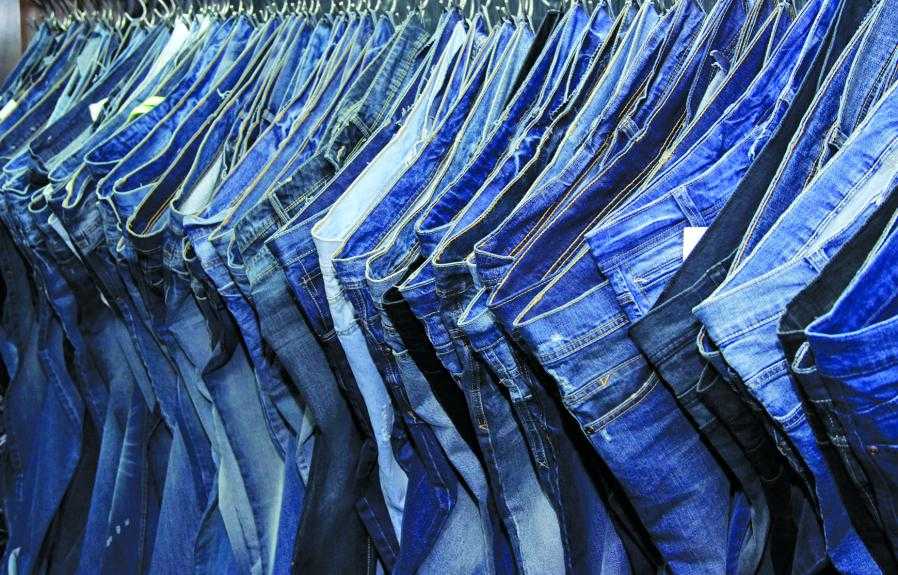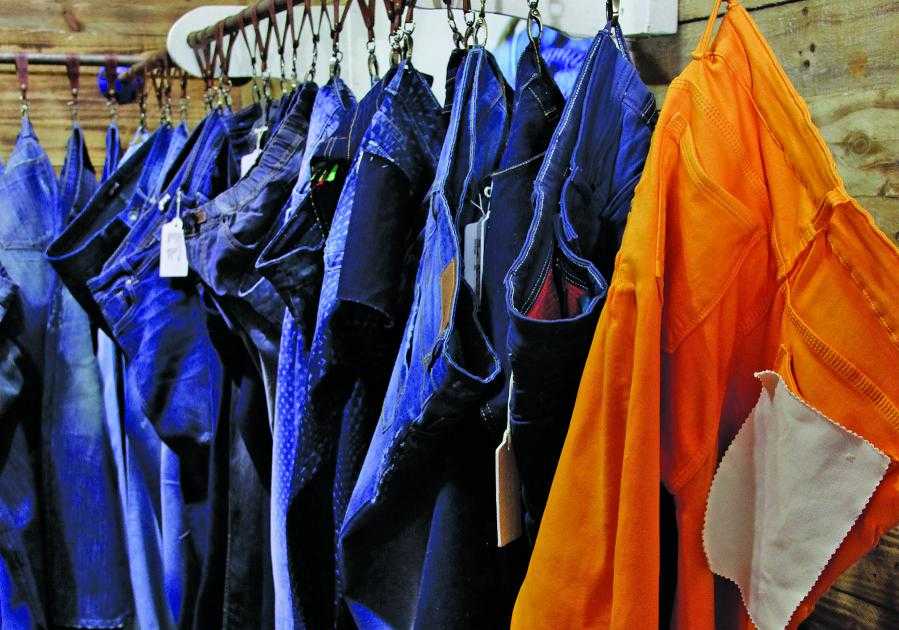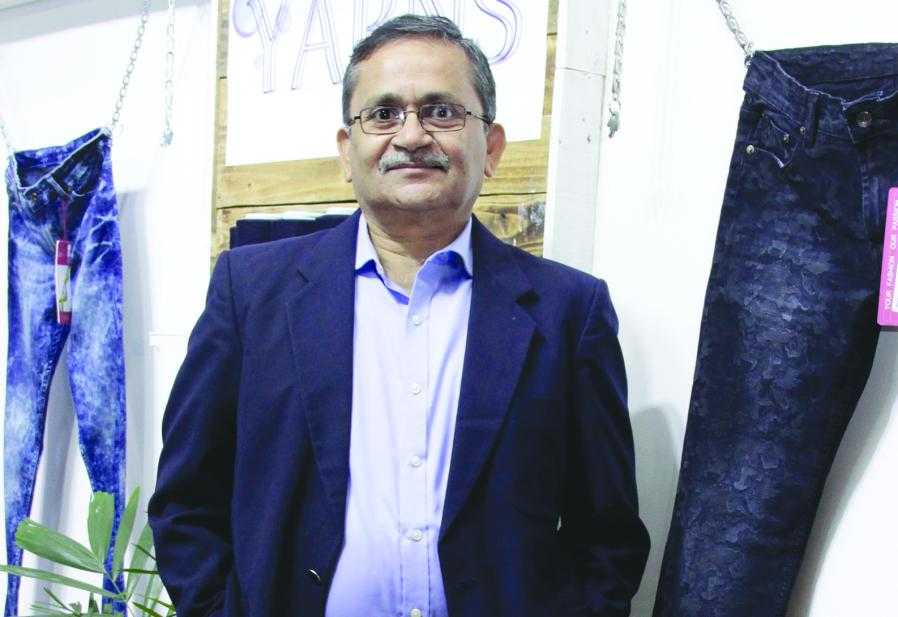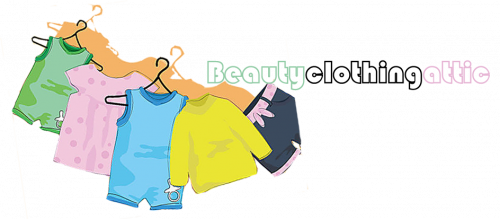
Over the past decade the Indian subcontinent has emerged as a powerful sourcing base for denim, be it fabric or finished product – jeans. While Pakistan and India still have an edge in fabric manufacturing, the Bangladeshi mills are also picking up fast; jeans manufacturing has converged in Bangladesh with practically all major brands from Levis to Gap to Zara… shifting their jeans sourcing to the country. Buyers now admit to looking at the region as a whole and not as isolated sourcing destinations, and what is even more encouraging is that players in the region are also viewing this development enthusiastically, confident that it will bring in bigger business.
Denim was always considered as a versatile fabric, developing with changing demands, but now unwittingly it has become the common thread to bind three nations in a common goal. Also, India has emerged as a huge market for the final product with both Pakistan and Bangladesh eyeing the business. “We may not yet be in a position to compete on fabric, but stitching and now washing/finishing on the garment is our forte and many of the Indian retailers are approaching us for jeans,” shares Md Abdullah Al Mamun, Development & Production, Natural Denims Ltd. Adds Naveed Ahmed, Manager Marketing & Public Relations (Bangladesh), Soorty, “Going forward, the future market for denim is going to be in Asia and particularly India. We all have to look inwards, and already many brands from India are approaching us for both fabrics and finished products.”

With India, being a huge endconsumer market, nearly 75 per cent of the denim fabrics produced in the country is used domestically, while the remaining is being exported to countries like Bangladesh, Turkey and more recently to South America and several African countries. What India is known for, is bulk production of denim fabric in different weaves and counts, and also as a source of sustainable options in fabric with limited capacities in jeans production. “Today India is among the frontrunners in sustainable options in denim, and though there are many other players around the world concentrating in this area, but the biggest focus in terms of product width is with Indian mills right from organic cotton to recycled denim,” says Prabir Bandhyopadhyay, CEO, LNJ Denim Business. Companies like KG Denim have built their reputation on sustainable offerings with good business network in Bangladesh.
On the other hand Pakistani mills have invested more on R&D in design and finishes and many of the big mills are now giving competition to Turkey, with some of them showcasing collections at PV on a regular basis. “We are targeting the high-end market, both in fabric and garments. Since Bangladesh has acquired the envious reputation of being the jeans manufacturing capital of the world, it made sense for us to establish a jeans manufacturing unit in the country, getting the skilled edge of both the countries for growth,” says Naveed whose company runs a garment factory at Comilla EPZ, manufacturing one million pieces per month.

The fact that Bangladesh has become the nerve centre of jeans production has been accepted by all the players in the value chain, and this very fact has actually helped boost business in the region. One of the biggest reasons besides manufacturing capabilities is the focus on washing and finishing. “What most jeans manufacturing factories in Bangladesh have invested in is washing plants, and today all the major exporters who ship and manufacture denim definitely have the capability to do any kind of finish at par with what is done in Hong Kong or even South America,” reasons Syed Asad Ali, Director, Armana Group. The Armana Group, a US $ 120 million company and a big player in denim garments with over 6,000 machines, produces 1.2 million units a month out of which 70% is denim bottoms. With the mills in Bangladesh also moving up the value chain to support the industry, the situation is becoming even more dynamic. “We see the growth of the region as a major denim centre and our effort is to support the industry with innovations in weaves and different constructions so that the garment manufacturers can play around with washes to create their own distinctive looks,” says Shams Mahmud, MD, Shasha Denims Ltd., considered one of the fastest growing and innovative denim fabric manufacturers in the country.
With all requirements from yarn to finishing available in the region, buyers are increasingly shifting their jeans programmes to the country. A few years back, GAP had anticipated this movement and shifted a lot of the business to Bangladesh with fabric support coming from India; last year European brand s.Oliver too diverted its China orders to Bangladesh. No wonder capacities have been increased. Ha-Meem, which is producing fashion denim garments for global brands such as GAP, Next, Mango and Calvin Klein, has recently increased its production lines to 300, thereby increasing its production capacities to 700 million pieces of garments per month, while Ananta Group has expanded to 100 sewing lines with a total of 6,000 machines, many others are on the same route. Though capacities and capabilities in fabric is also on the increase, the focus point still remains garment manufacturing.
It is significant that each country has realised that the competition is not within the region and it is beneficial for all denim players if business shifts to the region. “We can no longer look at each other as competitors, but work cohesively, respecting each other’s strength and continuously working to improve our own capabilities,” says Arshad Jamal, Chairman, Tusuka Fashions. Claiming to be the biggest denim bottoms manufacturer out of the country, Tusuka Fashions manufactures 1.8 million pieces of 5-pocket jeans per month, from its 6 world-class manufacturing facilities, located in and around Dhaka.
Also increasing the scope of the market for all its players is the widening application base with not only new categories like sports and active wear but also greater use in accessories like shoes, bags and stoles. “After converting from work wear to fashion, denim was the fabric for the youth and style icons, but now all age groups and genders are equally addicted to the fabric,” says Shreevats Jaipuria, Executive Director, Ginni International, India. He adds that of late many corporates have allowed denim bottoms with formal shirts as office wear, which has again widened the scope of use. Many had predicted that denim would lose out to the sports war trend but the way the industry has hit back with knitted denim and stretch denim is commendable, highlighting the responsiveness of the industry to adapt to market needs.
1) Artistic Milliners… Driven by R&D, patented products is the forte
Bangladesh as a market is important to all denim fabric manufacturers today, and the ones that have differential products directly targeted at buyers with focus on product development are finding success. H&M, Levis, GAP, G-Star and Zara are increasingly preferring to manufacture their high-end premium range in the country… Four companies – three from Pakistan and one from Brazil – have some exclusive products which no other mill is offering… Apparel Online takes a closer look on what makes these companies so special.
A fully vertical Green setup in Karachi manufacturing 5.5 million metres of fabric per month of which 1 million is imported to Bangladesh; Artistic Milliners is the biggest company among the many divisions of the original Artistic Group. The company sees Bangladesh as a very important and growing market, and has a wellstocked showroom in Gulshan area that displays the latest collection of the group simultaneously with its other showrooms in Spain, Italy, Turkey and the US. “There is so much production happening in the country that having a showroom here is not an option but a necessity, and since we are partners to many of the brands that manufacture in Bangladesh, for us the way forward is definitely upward,” reasons Khawaja Farrukh Abbas, Marketing Manager, Artistic Milliners.
With R&D as its core strength, the company has in its product profile some very interesting and special offerings. The most exclusive is the ‘Back to Life’ fabric for H&M. “Many denim manufacturers are working on recycled yarn for denim manufacturing, but H&M is the only company which runs a Post Consumer Waste (PCW) programme and we are exclusive partners to the project,” says a proud Abbas. Under this programme, H&M takes the initiative to collect used jeans from customers and sends it to Artistic Milliners for shredding and then spinning and fabric production. “We are the only mill which has the technology for this project,” adds Abbas. Another very exclusive product that the mill is working on is for G-Star called RAW, using ‘bionic yarn’, which is basically made from reclaimed pet bottles, thrown into the ocean around the world. The yarn is provided by G-Star and the same is converted into fabric by the company.
Supporting these innovations is a 16-member product development team in Karachi, the core job of which is to continuously create collections that are showcased every six months at PV. Among the latest products is the 100% stretch fabric that has wonderful recovery. Though it looks like a knitted fabric, it is in fact a woven fabric; and jeans made from it, besides being comfortable, are also size-flexible. “We are promoting this denim as ‘family denim’ as one jeans made from this fabric can be worn by everyone in the family without any fit issues,” smiles Abbas. This denim is manufactured using Neoprene technology.
2) Naveena Denim… Largest supplier to Levi’s
Concentrating exclusively on fabric since its inception in 2006, Naveena Denim situated in Lahore has facilities of spinning to fabric weaving and is very sure that they do not want to forward integrate into garments. “We are a fabric mill and that is where our core competence comes from, also we feel that companies that are buying from us are more confident when giving or picking up new fabric ideas as they do not look at us as competitors in the garmenting sector, which makes it easy for us to interact on new ideas,” reasons Luqman Bin Arif, HOD Marketing, Naveena Denim, Pakistan.
Known for its very wide range of fabrics, the company was giving 80% of its capacity of 1.45 million metres per month to Levi’s till 2012 when the brand changed its strategy and stopped nominating mills for fabric.
“Now the brand works directly with the garment manufacturers and expects them to present new ideas from which fabric selections are made, because of this change in policy we have now shifted our focus to jeans manufacturers,” says Arif. As of today, 40% of the fabric is still for Levi’s business and the rest is for other brands through the jean manufacturers.
Naveena Denim is very proud of the fact that it has the widest possible range of fabric construction from the softest to the strongest denim. The softest denim is made from a specialized yarn from Mitsubishi, Japan which is hollow yarn and only two denim companies in the world have the right to use the yarn, one is a Turkish company, and the other is Naveena Denim. “The hand-feel of the fabric without any wash is so soft that it can be used not only for comfort performance but also for sensitive skin like babies wear and women’s wear,” shares Arif. The strongest denim is made from Dyneema ultra-lightweight fibre, which is up to 15 times stronger than steel and up to 40% stronger than aramid fibre weight for weight. Therefore, it offers the possibility of making high-strength denim with a lighter weight than denim made with other high-strength fibres for rough and tough use in performance markets including motorcycle, hiking and outdoor, and safety apparel.
The company also boasts of a 360-degree stretch fabric, which has stretch both on vertical and horizontal weaving and is being promoted in the sports wear market, though Arif admits that fabric with 70% stretch is more popular in the market. Bangladesh is also important for the company which is maintaining an office in Dhaka and 20% of its fabric is imported into the country. “If we include the business of Levi’s also, the share of the Bangladesh market in total sales is over 30% or around 400,000 metres per month,” concludes Arif. Moving forward, the company will be working on sustainable concepts as it believes that the future of denim is moving in that direction.
3) Vicunha… Sustainability drives development
While most companies are just waking up to the realisation of sustainability as the driving force for the denim industry, Vicunha from Brazil has been exploring this area for more than a decade. Today the company uses only BCI cotton in its denim and claims to have a production unit with ‘zero landfill’ commitment. Every waste generated at the factory is recycled to the minutes of denominator with nothing left at the final stage for disposal. “We are a very conscious company and the fact that Brazilian laws also advocate responsibility to man and environment, only adds to our approach,” says Deberoah Turner, Marketing and Product Development Manager, Vicunha Textil Europe, the marketing arm of the company. While the manufacturing processes of the company are certified by NBR’s ISO 9001 and 14001, the indigo and denim products are also certified by Green Seal, which demonstrates a commitment to customer health and the environment.
Vicunha accounts for 40% of the Brazilian production of Indigo, and is also one of the largest global producers of denim fabrics in the world with capacity of 20 million metres per month. A fashion forward company, Vicunha brings out three trend books in a year that feature unique developments in fabrics and the new silhouettes and styles that will rule the denim market. For the coming season the company projects traditional handcrafts of Japan as a major influence and the extended use of denim for everything from bags to shoes.
In line with the Athleisure trend, the company is offering new technological advancements, creativity and authenticity for 80% stretchability with 100% recovery property, which is a cross-over between a jeans and sportswear. The range of stretch denims offers improved performance, greater comfort and durability to the wearer. “Coated looks also continue to be strong with various leather effects to offer a cleaner, more urban look. One can also spot the return to ‘authentic denims’ with raw aspect, and denim with retro-vintage-look,” shares Deberoah.
Recognising Bangladesh as one of the most important markets today, the company is offering stock services from Colombo with three-day delivery for fast repeatability. “Bangladesh market has the potential to give huge volumes, as the work with all the big denim brands and we are getting to know this market and also building our own brand where customers can get high-end sustainable fabric at very competitive prices,” concludes Deberoah.
4) Soorty… Quality of fabric is the base of all developments
Denim is perhaps the only fabric that is subjected to so many chemical and mechanical finishes, both at the fabric and garmenting stage. That is why it is very important to have a good quality fabric that can not only withstand such rigorous treatment, but can also reflect the treatments in the best possible application. Soorty, Pakistan claims that quality of fabric from its integrated set-up is one of its biggest strengths. The 35 years old company manufactures 3.5 metres of fabric per month, of which 1 million is imported to Bangladesh, both for the industry and for its own garmenting unit in the country. As of now the major clients for both the fabric and garments is Europe, but the company is strategizing to focus on the US market.
With a product development team consisting of designers from Italy and Turkey, who not only attend all major denim shows but also keep track of street fashion, the R&D division of the company, is constantly working on innovation. “We attribute our success in the market to our strong R&D skills and I can say with confidence that we are among the top 3 denim mills in Pakistan,” says Naveed Ahmed, Manager Marketing & Public Relations (Bangladesh), Soorty. The company does a lot of experimentation at the yarn stage and uses various blends including Tencil and Modal to give new looks to standard weaves. The company has recently launched the ‘Zumba’ Denim, which stretches in four ways and has high stretch with excellent durability. It also doesn’t lose its size even after numerous washes.
Soorty is very active on presenting its collection at international forums and besides the PV in Europe, the company also showcases regularly at Kingspin Hong Kong and New York. “We are among the few Asian mills that display at PV and the idea is not to generate business directly, but to position the company as ‘trend forward’, giving directions to the denim market.” “We already have a Green garmenting factory in Bangladesh and now we want to do a similar setup in Pakistan, because we realize that sustainability in process and product is going to be the future of denim,” says Naveed. Being present in the denim industry from spinning to garmenting, including laundry, the company is very much aware of its responsibility to the environment. “The denim industry in China has reduced drastically on major concerns of pollution and we cannot overlook the importance of investing in this area,” concludes Naveed.

Leave a Reply